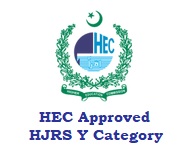Combating Maritime Crimes: Legal Challenges under the United Nations Convention on the Law of the Sea
Keywords:
Enforcement, Environmental Law, Flag State, Human Trafficking, Illegal Fishing, International Cooperation, Jurisdiction, Maritime Security, Piracy, Transnational CrimeAbstract
This article examines the legal challenges posed by maritime crimes under the framework of the United Nations Convention on the Law of the Sea (UNCLOS). The oceans, while vital for global trade and security, have increasingly become a site for criminal activities such as piracy, illegal fishing, human trafficking, and environmental crimes. The research focuses on the efficacy of UNCLOS in addressing these crimes, analyzing jurisdictional complexities and enforcement limitations. A doctrinal legal research method is employed, reviewing relevant legal instruments and case studies of maritime crimes. Key findings reveal that, while UNCLOS provides a comprehensive framework for regulating maritime activities, enforcement mechanisms, particularly in international waters, are weak. Jurisdictional gaps, flag state responsibilities, and the lack of resources among coastal states further hinder the fight against these crimes. The study highlights the importance of international cooperation and suggests the need for stronger enforcement provisions and capacity-building initiatives to address the growing security threats in global maritime spaces
Downloads
References
Ahmad, M. (2020). Maritime piracy operations: Some legal issues. Journal of international maritime safety, environmental affairs, and shipping, 4(3), 62-69.
Al-Nauimi, N., & Meese, R. (Eds.). (2023). International legal issues arising under the United Nations decade of international law. Martinus Nijhoff Publishers.
Boyle, A. (2013). The challenge of climate change: International law perspectives. In European Perspectives on Environmental Law and Governance (pp. 55-80). Routledge.
Bueger, C., & Edmunds, T. (2020). Blue crime: Conceptualising transnational organised crime at sea. Marine Policy, 119, 104067.
Chang, Y. C., Liu, H., Khan, M. I., & Liu, C. (2021). Legal system for the development of marine renewable energy in the USA: a thorough analysis. Clean Technologies and Environmental Policy, 23, 371-385.
Christodoulou, A., & Echebarria Fernández, J. (2021). Maritime Governance and International Maritime Organization instruments focused on sustainability in the light of United Nations’ sustainable development goals. In Sustainability in the Maritime Domain: Towards Ocean Governance and Beyond (pp. 415-461). Cham: Springer International Publishing.
Guilfoyle, D. (Ed.). (2013). Modern piracy: Legal challenges and responses. Edward Elgar publishing.
Hassan, D., & Hasan, S. (2017). Effectiveness of the current regimes to combat piracy in the Gulf of Guinea: An evaluation. African Journal of Legal Studies, 10(1), 35-65.
Hussain, N., Khan, A., & Memon, S. (2023). Addressing Marine Pollution: An Analysis of MARPOL 73/78 Regulations and Global Implementation Efforts. Journal of Social Sciences Review, 3(1), 572-589.
Hussain, N., Khan, A., & Wassan, R. (2023). UNCLOS 1982: Comparative Analysis of Marine Pollution Prevention by Ships. Annals of Human and Social Sciences, 4(2), 295-308.
Khan, A., & Ximei, W. (2022). Digital economy and environmental sustainability: Do Information Communication and Technology (ICT) and economic complexity matter?. International journal of environmental research and public health, 19(19), 12301.
Khan, A., Usman, M., & Amjad, S. (2020). Jurisdictional Challenges in Prosecuting Maritime Crimes: A Comparative Analysis. International Review of Social Sciences, 8(11), 376-382.
Klein, N. (2019). Maritime autonomous vehicles within the international law framework to enhance maritime security. International Law Studies, 95(1), 8.
Klein, N. (2024). The Law of the Sea and Its Relevance for Maritime Conflicts in East Asia. In Navigating East Asian Maritime Conflicts: Technological Change, Environmental Challenges, Global and Regional Responses (pp. 29-53). Cham: Springer Nature Switzerland.
Liao, B., Chang, Y. C., & Khan, M. I. (2023). The impact of the monetary gold principle on the determination of jurisdiction in the mixed maritime disputes. Science Progress, 106(2), 00368504231179814.
Lodge, M. W. (2001). The Fisheries Regimes of Enclosed and Semi-Enclosed Seas and High Seas Enclaves. In Developments in International Fisheries Law (pp. 193-216). Brill Nijhoff.
Menzel, A. (2018). Institutional adoption and maritime crime governance: the Djibouti Code of Conduct. Journal of the Indian Ocean Region, 14(2), 152-169.
Nevers, R. D. (2015). Sovereignty at sea: States and security in the maritime domain. Security Studies, 24(4), 597-630.
Norton, M. (2014). Temporality, Isolation, and Violence in the Early Modern English Maritime World. Eighteenth-Century Studies, 48(1), 37-66.
Rembe, N. S. (2022). Africa and the International Law of the Sea: A Study of the Contribution of the African States to the Third United Nations Conference on the Law of the Sea (Vol. 6). Brill.
Riaz, N., Khan, A., & Usman, M. (2022). Legal Frameworks for Combatting Piracy under International Law: Evolving Strategies and Challenges. Asian Social Studies and Applied Research (ASSAR), 3(01), 284-291.
Ribeiro, M. C. D. C. M., Bastos, F. L., & Henriksen, T. (Eds.). (2020). Global Challenges and the Law of the Sea (Vol. 467). Springer.
Schloenhardt, A., Calderoni, F., Lelliott, J., & Weißer, B. (Eds.). (2023). UN convention against transnational organized crime: a commentary. Oxford University Press.
Tian, H., Khan, M. I., & Chang, Y. C. (2023). Maritime Traffic Law of the People’s Republic of China and its implications in international law. Marine Policy, 151, 105570.
Tondini, M. (2017). The use of force in the course of maritime law enforcement operations. Journal on the Use of Force and International Law, 4(2), 253-272.
Usman, M. U. H. A. M. M. A. D., Amjad, S. O. H. A. I. L., & Khan, A. S. I. F. (2021). Human Trafficking and Smuggling: Intersection with Maritime Law and International Cooperation. International Review of Social Sciences, 9(01), 504-510.
Usman, M., Khan, A., & Amjad, S. (2021). Implications of Transnational Crime on Maritime Jurisdiction and Enforcement. International Review of Social Sciences, 9(04), 456-462.
Witbooi, E., Ali, K. D., Santosa, M. A., Hurley, G., Husein, Y., Maharaj, S., ... & Salas, O. (2020). Organized crime in the fisheries sector threatens a sustainable ocean economy. Nature, 588(7836), 48-56.
Downloads
Published
License
Copyright (c) 2024 The Author

This work is licensed under a Creative Commons Attribution-NonCommercial 4.0 International License.






